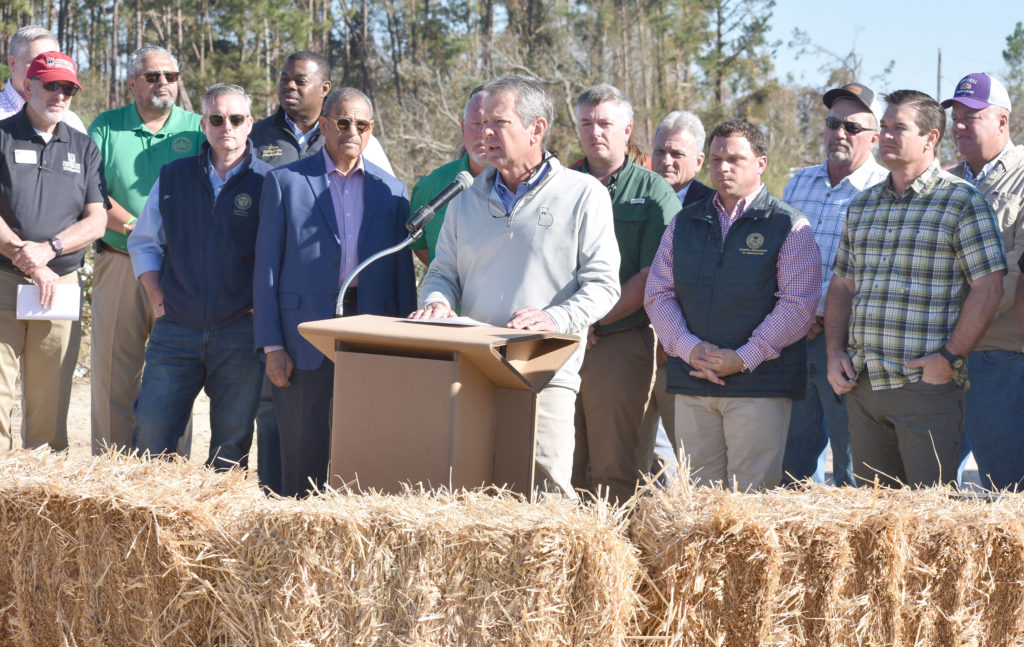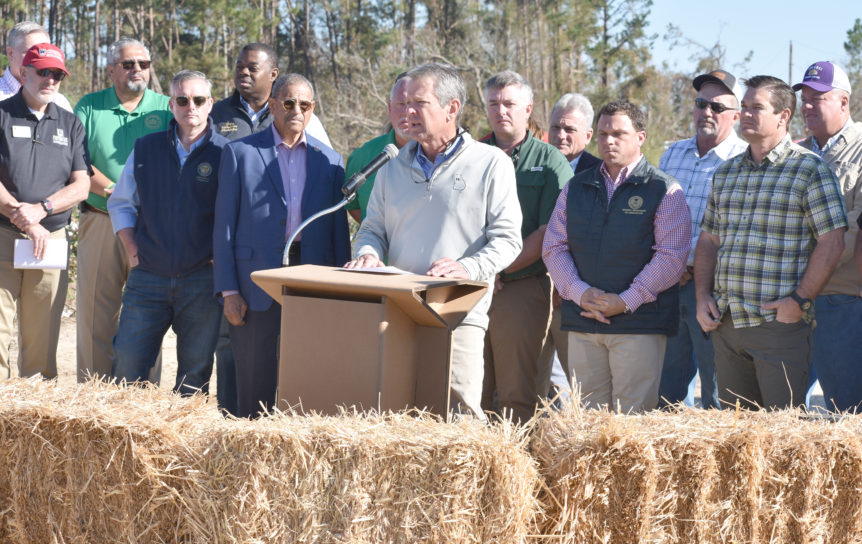
By Clint Thompson
HB 223 continues to move through Georgia’s legislative process. Georgia Governor Brian Kemp, along with House Whip James Burchett, introduced the bill, which was designed to provide state assistance to help farmers and timber owners in the aftermath of Hurricane Helene.
The bill passed the House on Feb. 18 and is currently being modified in the Senate, according to Georgia Agribusiness Council (GAC) President Will Bentley.
“HB 223 is now over in the Senate. They are working on that, had some conversations with some senators this morning. They are most likely going to add a little bit more language to it, maybe consolidate another bill into it that’s dealing with similar relief efforts in forestry and ag,” Bentley said. “We expect that to continue to move through the process. The governor is fully in support of and fully pushing it, so it should move pretty quickly.
“It’s active upon signature instead of date later in the year. It would become law as soon as passes and the governor would be expected to sign it shortly thereafter.”
Key Provisions
The bill’s key provisions include tax exemption for disaster relief payments.
- It proposes excluding certain disaster relief or assistance grant program payments for ag losses suffered because of Helene from the calculation of taxable net income.
- It provides refundable income tax credits for certain timber producers based on specific casualty losses related to Helene.
- The legislation exempts building materials used for repairing and replacing poultry houses, livestock barns and greenhouses from sales tax, facilitating the reconstruction of essential farm infrastructure. Bentley said they will continue to lobby to include materials used in all ag structures across all commodities as the bill progresses.
While the bill’s passage is not a guarantee, it is expected to pass through the legislative process.
“Nothing is ever a foregone conclusion. Just shy of a foregone conclusion, I think it’s something that’s definitely going to happen,” Bentley said.
Following the storm’s trek through Georgia on Sept. 26-27, University of Georgia College of Agricultural Environmental Sciences announced initial estimates from the storm at a $6.46 billion economic impact. It included direct and indirect losses, loss of jobs, etc. Georgia’s specialty crops in the hurricane affected areas were especially impacted.










